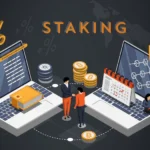I Want to discuss the Geek Squad scam, one of the fraudulent practices this article will explain. It tricks people and incorporates strategies to take their money or personal details.
For example, some scam data, such as email or phone calls pretending to be the services of Geek Squad, contribute to pressure or panic that makes you want to respond.
Under this context, it presents practical ways to avoid being victims of such scams.
What is a Geek Squad Scam?
The Geek Squad scheme is a phishing scam in which criminals deceitfully represent themselves as Geek Squad, Best Buy’s IT department contracting services, to extract sensitive details from people.
For example, these fraudsters will send you bogus emails renewing your Geek Squad membership and asking you to call a number to cancel the renewal.

When you do this, they will request that you give them remote access to your machine, or they will request direct access to your bank details.
Other strategies include sending emails with hidden links that, once clicked on, turn out to have a virus or sending you money by mistake and asking for it back, citing an overpayment.
To avoid such situations, it is recommended that you never open attachments from unknown email addresses, check the sender of an email, and if you have any doubts about the email, call Geek Squad.
How the Geek Squad Scam Works
The Geek Squad email scam has multiple variations, which unfortunately makes it easier for the intended target to be scammed.
In this case, however, the goal is well known: to cause you financial loss or obtain your private details.
Thieves can contact you as Geek Squad via phoney websites, emails, text messages, or phone calls.

Without these fake cables, gains are managed within email addresses and telephone numbers.
A trigger is usually included in the correspondence explaining your need to reply.
When you respond, they may charge a fee, ask for your personal or account information, or offer to help you remotely—which can be a ploy to install spyware on your system to capture your information.
Auto-Renewal Scams
This scheme begins with a phoney email or phishing text informing you that your credit card has been charged and your Geek Squad subscription is being renewed as usual.
This amount is generally about $400. The message emphasizes urgency, warning the recipient that if the renewal was done in error, they have 24 hours to call the number provided by the scammer.
They will even promise to reverse that for a fee. It does not matter whether you have a Geek Squad account; everyone is fair game.
Security Support Scams
Sometimes, when you click the mouse on various links on the Internet to find relevant information, a pop-up suddenly tells you that your computer is infected with a virus or some other kind of malware.
A prompt asks users to call a screen that oddly shows the Geek Squad phone number, yet another scam approach. When you do that, they charge you a lot of money to take care of a problem that was never there in the first place.
Malware Scams
Many cyber criminals use a specific gimmick: they require clients of the so-called “Geek Squad” to download software so their “technicians” can remotely repair the clients’ computers.
This type of software, which compromises this title, is designed to allow the fraudster to access the user’s device and extract sensitive information from that particular device.
Scam and Extortion Cases
Once criminals have installed ransomware on your computer, they will use it to hold your files hostage and demand a ransom to release them.
These are often done through untraceable payment forms such as prepaid cash cards.
Social Engineering Scams

Fake emails generate considerable income from tech support that promises customers trouble-free hardware systems.
You contact them hoping to get the service; however, they tell you that you must first pay by credit card to book the appointment.
In other words, you’re talking to a scam marketer whose sole purpose is to con you from your hard-earned cash.
Overpayment Email Scam
The message contains an alternative stating that you overpaid and are entitled to get the money back.
For instance, you may have received such a phone call, and even if you don’t remember ordering anything, you may be missing a chance to get your money back.
When you reach the number she provides, he offers to send the funds, but only if you send him money first, which is usually done with gift cards.
Scams of Identity Theft
Many phishing emails contain social engineering warnings, often posing as legitimate ones.
There could even be a message from Best Buy joking that the Geek Squad system has been compromised, urging a login to verify details such as passwords.
Although innocent documents may look like these, they are not, and any information you enter is diverted to the scammer.
Such scams are called recovery scams.
After a fraudulent scheme is completed, the scammers will call you back, this time as actual Geek Squad representatives, offering to assist you in reclaiming lost money or data.
But this, too, is a scam. They are trying to get more money from you by pretending to be helpful.
How To Avoid Getting Scammed?

Scams do not occur through luck; remaining alert and minimizing risks is essential. Here are some excerpts that will be helpful
Check Unsolicited Communications: Be Watchful Of All Emails. If you receive an email, call, or text making certain and often peddling the idea that you must give specific personal details or money to have them, exercise caution. Try to confirm the identity of the person you are communicating with through official means.
Do not click on suspicious links: Do not follow links or open attachments from emails or messages you do not recognize or that seem suspicious. They could be spam or contain malware.
Use Strong And Unique Passwords: Assign secure passwords for all your accounts while looking for the best password. You also have some alternative methods to avoid all the password issues.
Enable Two-Factor Authentication (2FA): Last but not least, try to use 2FA wherever possible on your accounts. 2FA acts as an additional layer of protection, and you will also have to provide a secondary level of confirmation other than the password.
Keep the detected software updated: Occasionally update your OS, browser, and applications to maintain protection from possible vulnerabilities.
Check Your Accounts: Regularly check your bank and credit card transactions and statements for unauthorized activity. Notify someone about any strange or abnormal behaviour you observe.
Learn about fraud: Learn the frauds that are rampant in their scams. Information is a good weapon ginger against a twin foe.
Employ Appropriate Security Solutions: To shield your devices, utilize and regularly update legitimate anti-virus and anti-malware programs.
Take Care of Your Personal Information: Always remember the kind of information you provide and to whom because fraudsters can take advantage of such data.
Check the Sources: If you get an unwanted email from an unknown source, refrain from clicking on any links or replying to the email. Instead, contact the company or individual who claims to have sent you that email using a phone number or address you know to be legitimate.
Have you experienced a news report or an article that raised some ‘red flags’ in that any communication made was not with a legitimate person or entity?
Conclusion
To conclude, the Geek Squad scam dominates the Internet. Quite remarkably, one variant is intended to make you give away cash or your details.
With awareness of schemes such as scam notices about nonexistent renewals, spams with malicious content, and calls by nonexistent tech support experts, the chances of doom could be minimal.
However, any unusual communication, including phone calls, should be verified using an official channel, and one should also be cautious of any unusual requests.
Knowledge is the first weapon to protect one’s personal information and finances against these scams.










